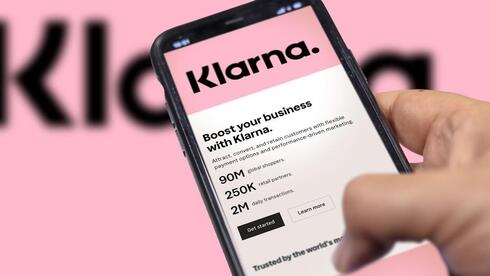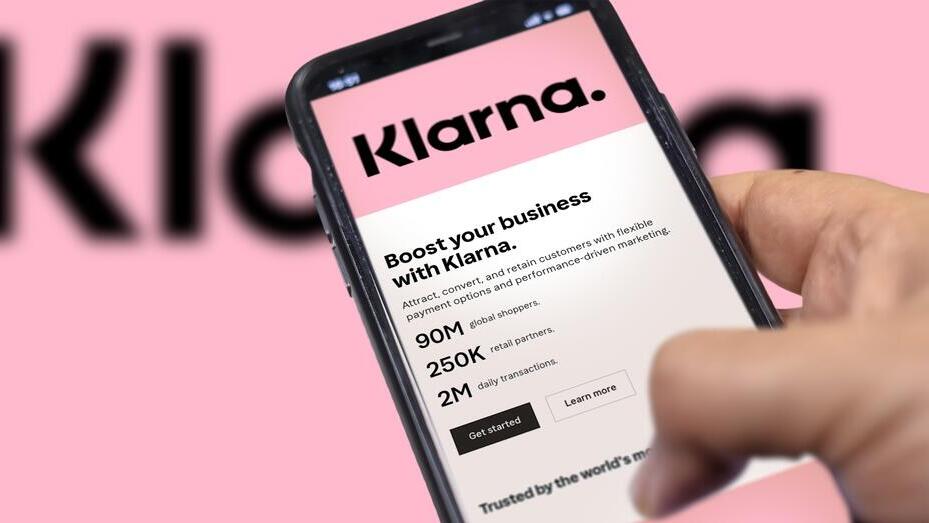
Klarna's New York IPO: A fintech powerhouse or a cautionary tale?
Swedish BNPL pioneer braces for investor scrutiny after years of turbulence.
Swedish fintech company Klarna, a pioneer of the "buy now, pay later" (BNPL) model, is preparing for an IPO on the New York Stock Exchange, a move that could finally meet the expectations of its longtime investors.
Klarna has become a symbol of the volatility in the fintech market in recent years. In 2021, the company was valued at a record $46 billion, making it the most valuable startup in Europe. However, in less than a year, following sharp declines in the technology sector, its value collapsed to just $6.7 billion.
According to a prospectus the company filed ahead of its IPO, Klarna ended 2024 with a net profit of $21 million, compared to a loss of $244 million in 2023 and a loss of $1.03 billion in 2022. Revenue grew by 24% to $2.8 billion. Even with a profit, and considering that companies often present their best financial results before going public, Klarna's profitability remains below 1% of sales.
The company's losses followed its decision in 2019 to focus on aggressive expansion into the British and American markets. Last year, Klarna sold its UK loan portfolio to Elliott Management, an activist investment fund. Registered as a bank in Sweden since 2017, Klarna has raised approximately $4.8 billion since its founding. However, its operating status remains unregulated in many markets.
Klarna's IPO is significant not only due to its scale but also because of its decision to list in the U.S. rather than Sweden—similar to the Swedish tech giant Spotify, which directly listed its shares on the NYSE in 2019.
Sweden is recognized as one of Europe’s strongest startup hubs, with one of the highest numbers of unicorns per capita on the continent. However, many Swedish companies have been acquired by foreign entities: Skype was sold to eBay, Minecraft to Microsoft, and iZettle to PayPal.
Despite Sweden's deep and stable capital market, it is often seen as mature and conservative. Only five of the top 30 companies on the Nasdaq Stockholm (OMX) index were founded after 1970. A recent European competitiveness report found that 40 of the 147 unicorns founded in Europe between 2008 and 2021 relocated their headquarters outside the continent, the vast majority to the U.S. This underscores Europe's ongoing challenge in retaining its leading technology firms.
Another key factor in Klarna’s decision is market liquidity. The U.S. market offers higher trading volumes and stronger returns. For example, while the Nasdaq Stockholm index recorded a 7% return over the past year, the U.S. Nasdaq index rose by 10%, and the NYSE Composite index increased by 7.5%. Over the past five years, the U.S. Nasdaq surged by 158%, compared to 98% for Nasdaq Stockholm.
Founded in 2005, Klarna currently serves 93 million users worldwide and 675,000 merchants, making it one of the most prominent players in the BNPL industry. Its business model relies on offering interest-free credit to consumers, generating revenue primarily from merchant fees (around 5% of the transaction cost) and late fees, which can reach up to 25% of the total loan amount.
The BNPL market has seen explosive growth, particularly since the COVID-19 pandemic. The volume of credit extended to American consumers through BNPL services surged from $2 billion in 2019 to $80 billion in 2024. However, a Bloomberg survey found that 43% of BNPL users struggle to make payments, and 28% have fallen into delinquency.
This rapid expansion has raised regulatory concerns. Critics argue that the BNPL model encourages excessive consumer debt by making it too easy to overspend. Klarna and other BNPL providers do not report loan data to credit agencies, making it difficult to assess consumers’ total debt exposure—a phenomenon some analysts call "phantom debt."
For years, the lack of oversight led to warnings that BNPL was becoming a "credit trap," driving consumerism and overspending. A 2023 report by the U.S. Consumer Financial Protection Bureau found that BNPL users are more likely to accumulate high levels of debt, miss payments on traditional credit products, and experience financial distress. It also noted that two-thirds of BNPL users have low credit ratings. In response, new regulations introduced in 2024 classified BNPL firms as credit providers, subjecting them to rules similar to those governing credit card companies.
However, these regulations could be at risk following promises by Elon Musk, head of the U.S. Department of Government Efficiency, to push for the closure of the Consumer Financial Protection Bureau.
Klarna’s upcoming IPO marks a renewed attempt to establish itself as a dominant force in fintech. While European markets struggle to retain their tech startups, Klarna’s choice of New York highlights the appeal of U.S. capital markets and greater liquidity.
Despite its growth, Klarna faces significant regulatory headwinds. The key question now is whether its IPO will sustain the company’s positive momentum or expose it once again to market and investor pressures.














